João Gilberto
João Gilberto

João Gilberto, born João Gilberto do Prado Pereira de Oliveira on June 10, 1931, and passing away on July 6, 2019, was a Brazilian guitarist, singer, and composer renowned for pioneering the musical genre of bossa nova in the late 1950s. Throughout the world, he was often hailed as the "father of bossa nova," while in Brazil, he was affectionately referred to as "O Mito" ("The Legend").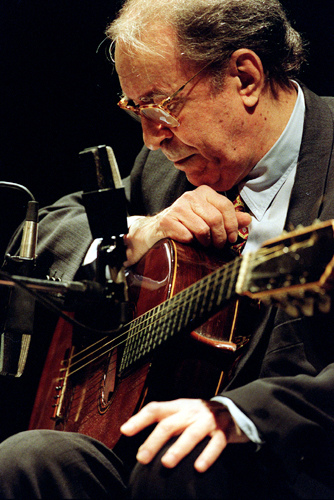
One of his most notable achievements came in 1965 with the release of the album "Getz/Gilberto," which became the first jazz record to win the Grammy Award for Album of the Year. Additionally, "Getz/Gilberto" secured victories in the categories of Best Jazz Instrumental Album – Individual or Group and Best Engineered Album, Non-Classical.
In 1978, Gilberto received a Grammy nomination for Best Jazz Vocal Performance for his album "Amoroso." He later clinched a Grammy win in the Best World Music Album category in 2001 for "João voz e violão." Throughout his career, João Gilberto's contributions to music, particularly bossa nova, left an indelible mark on the global music landscape.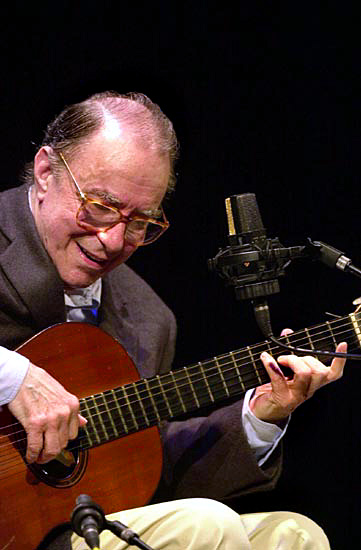
João Gilberto was born in Juazeiro, Bahia, the son of Joviniano Domingos de Oliveira, a wealthy merchant, and Martinha do Prado Pereira de Oliveira. He spent his early years in his hometown until 1942 when he commenced studies in Aracaju, Sergipe, returning to Juazeiro in 1946. At the age of 14, despite his father's disapproval, Gilberto received his first guitar from his grandfather.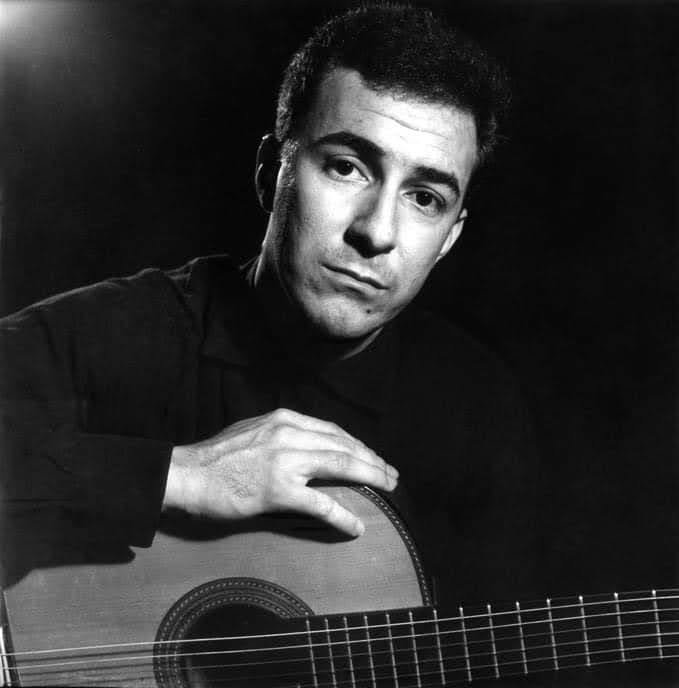
While still in Juazeiro, Gilberto formed his inaugural band, named "Enamorados do Ritmo." In 1947, he relocated to Salvador, Bahia. Over the subsequent three years in the city, he abandoned his formal studies to fully devote himself to music. At 18, he embarked on his artistic journey as a crooner at the Rádio Sociedade da Bahia.
João Gilberto's early recordings were released in Brazil as two-song, 78-rpm singles from 1951 to 1959. As Brazilian singles evolved into the "double compact" format in the 1960s, Gilberto released some EPs in this new format, featuring four songs on a 45-rpm record. In 1956, he returned to Rio de Janeiro and reconnected with old acquaintances, notably Antônio Carlos Jobim, who was working as a composer, producer, and arranger with Odeon Records. Jobim was impressed by Gilberto's innovative guitar playing style and sought to pitch the style to Odeon management.
In 1963, Gilberto collaborated with American jazz musician Stan Getz on the album Getz/Gilberto, released the following year. Jobim played the piano for the album, while Gilberto's then-wife Astrud performed the vocals in English while he sang in Portuguese. The duet between Astrud and João Gilberto on the track "The Girl from Ipanema" became a major hit from the album. At the 7th Annual Grammy Awards, Getz/Gilberto won three awards, including Album of the Year, making it the first jazz album to receive this accolade.
Known for his exacting acoustic and noise-control standards, Gilberto was meticulous during recording sessions, sometimes requiring numerous takes to achieve the desired pronunciation or sound. Despite his high standards, he once skipped a contractually required sound check before a performance at the Hollywood Bowl in 2003, leading to audience dissatisfaction.
In 1997, Gilberto sued record label EMI over the remastering of several of his early works, claiming that the reissues did not adhere to his original recordings and diminished his artistic work. EMI ceased production of the albums in question following the lawsuit.
In 2001, Gilberto won the Grammy for Best World Music Album for his work on the album João Voz e Violão. He was later inducted into the International Latin Music Hall of Fame in 2002. In 2003, Gilberto performed in Japan, and his performance at the Tokyo International Forum was recorded for a live album titled In Tokyo, released in 2004. The album received a nomination for Best MPB Album at the 6th Annual Latin Grammy Awards in 2005. In 2017, Gilberto received an honorary doctorate in music from Columbia University.
João Gilberto's innovation in the realm of Brazilian music was deeply intertwined with technological advancements and creative adaptations to equipment limitations. With the introduction of the microphone and amplifier in Brazil, Gilberto recognized that sound didn't need to be projected intensely, leading to subtle and internalized interpretations both vocally and instrumentally. However, despite the potential for nuanced performances, Brazil lacked high-fidelity recording equipment at the time of the first bossa nova recordings.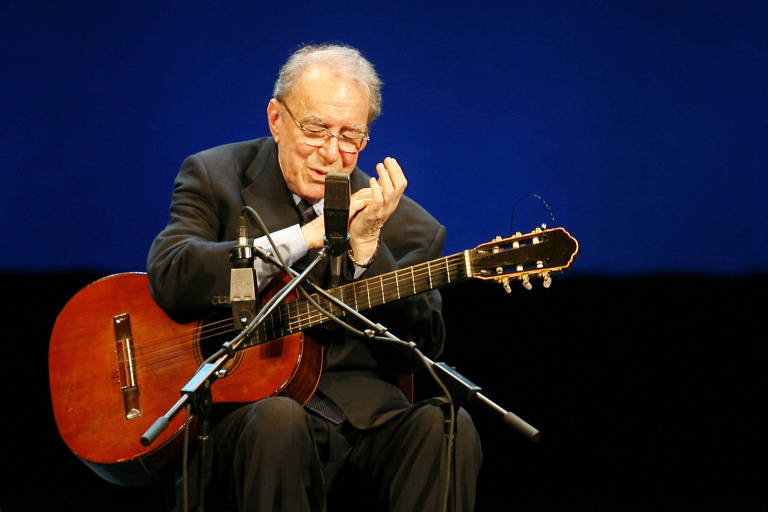
Gilberto and Tom Jobim, his initial arranger, navigated this challenge by crafting complex harmonies influenced by American music while simplifying the overall sound to accommodate equipment limitations.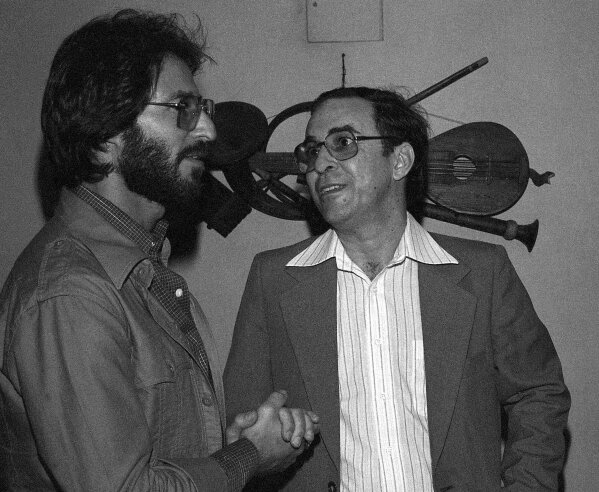
In July 1958, Elizete Cardoso released the landmark LP "Canção do Amor Demais," featuring songs by Jobim and Vinicius de Moraes. Gilberto's guitar accompaniment on tracks like "Chega de Saudade" and "Outra Vez" marked the first recordings of the bossa nova beat. In August of the same year, Gilberto released a 78 rpm record featuring "Chega de Saudade" and "Bim Bom," recorded at Odeon with collaborations from Jobim, Dorival Caymmi, and Aloysio de Oliveira. This album pioneered the bossa nova genre and quickly became a commercial success.
Gilberto's recording techniques were revolutionary. He used two microphones—one for voice and one for guitar—allowing for clearer harmony. Unlike previous recordings that emphasized the voice over the guitar, Gilberto's innovation ensured both voice and guitar could compete equally in volume, maintaining a natural intensity. This approach transformed the recording process, with both sound sources captured equally by the microphones.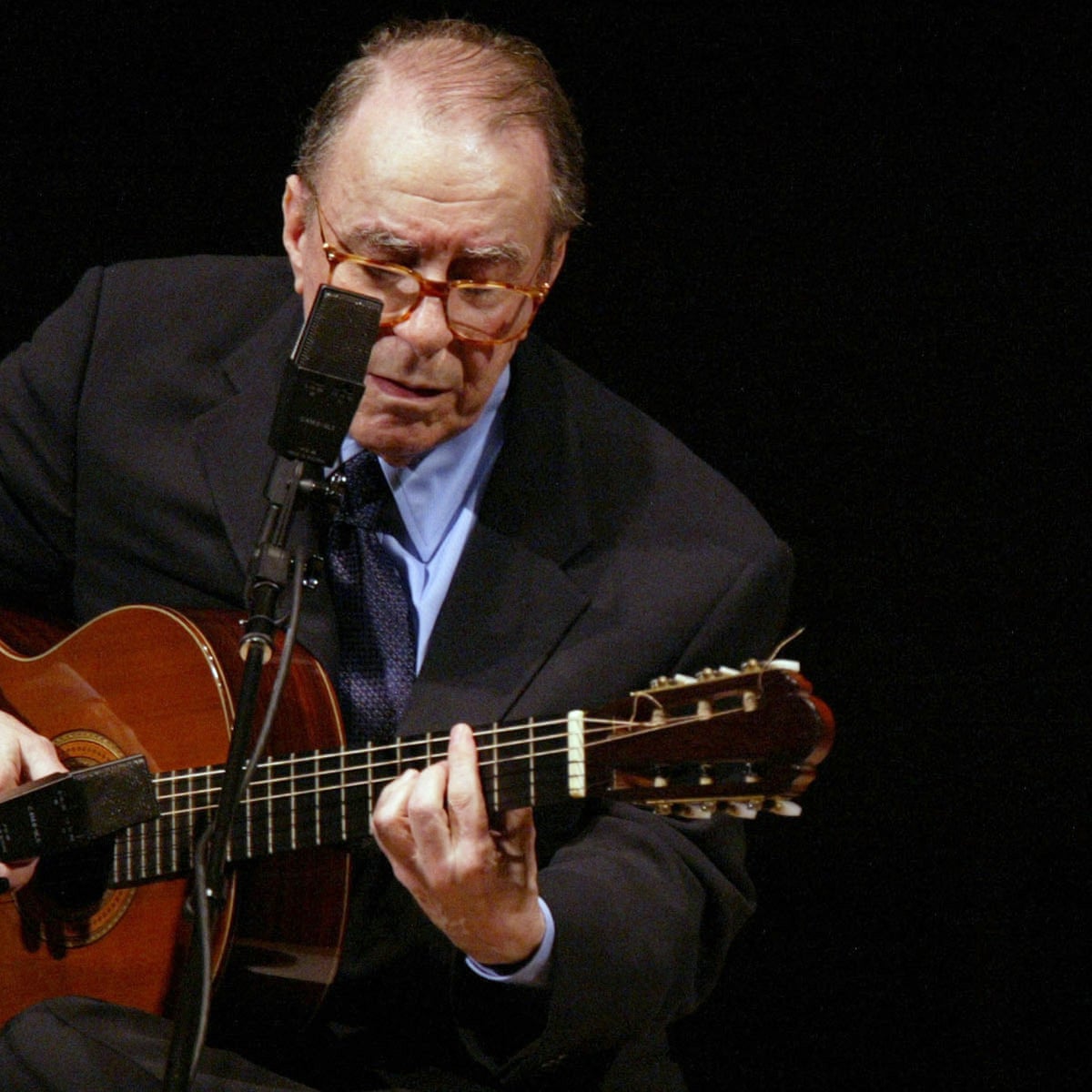
In 1959, Gilberto released another 78 rpm featuring "Desafinado" by Jobim and Newton Mendonça, and "Hô-bá-lá-lá," a composition of his own. In March of the same year, he released the LP "Chega de Saudade," which achieved remarkable sales success and left an indelible mark on the history of Brazilian music.
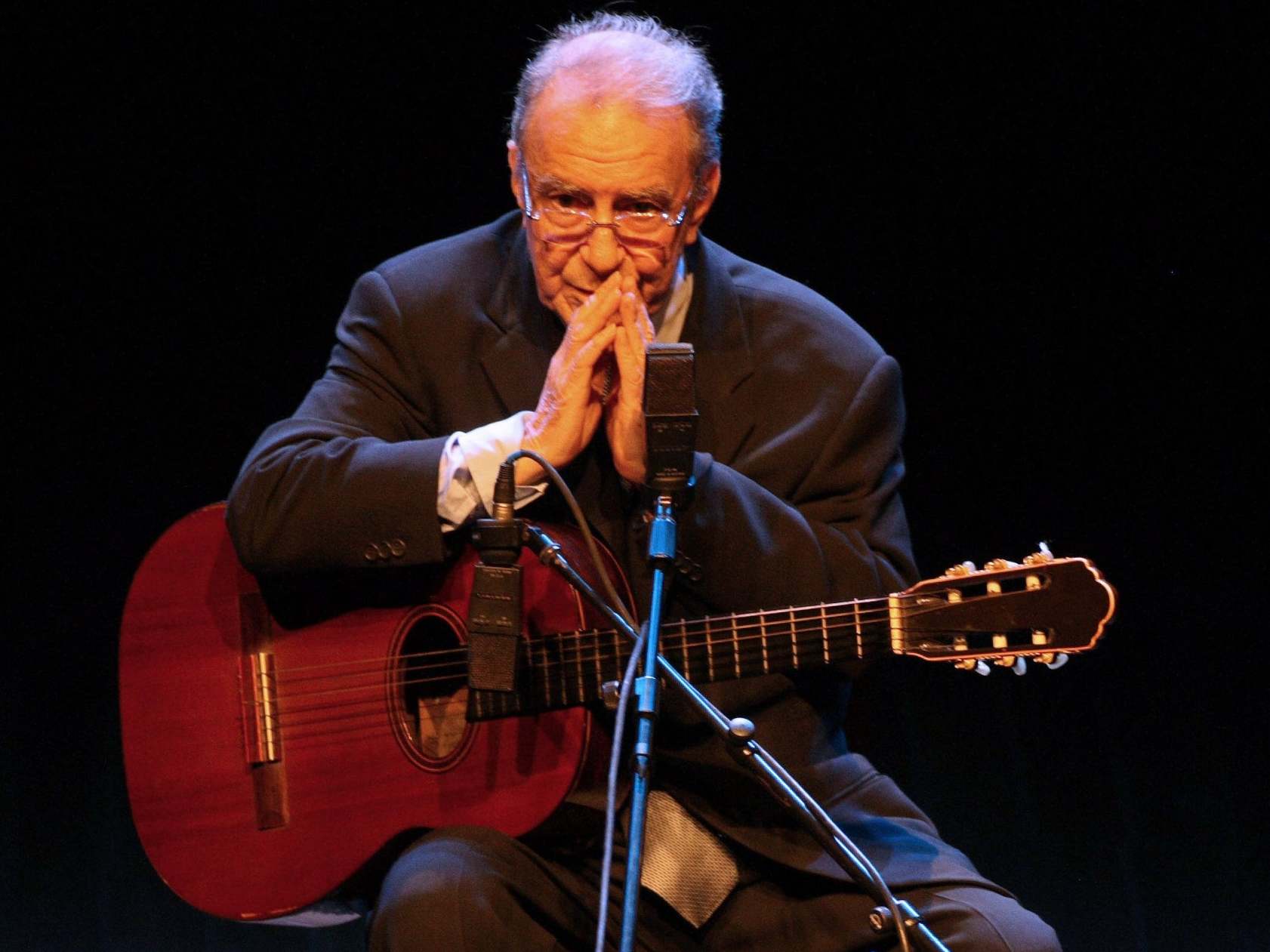
João Gilberto's musical style is a fusion of traditional samba elements with contemporary jazz influences. His acoustic guitar technique is considered unique, characterized by a syncopated rhythm of plucked chords. Rooted in the jazz tradition, Gilberto's chord progressions add depth and complexity to his music.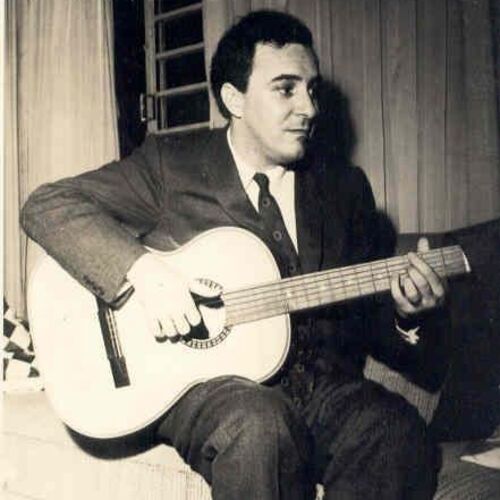
In addition to his innovative guitar style, Gilberto's vocal delivery is often described as laid-back and understated, contributing to the overall cool and relaxed vibe of his performances. His singing exudes a sense of effortless charm and intimacy, drawing listeners into the subtleties of his interpretations.
João Gilberto's influence and impact on music are widely recognized. In 2023, Rolling Stone honored him by ranking him at number 81 on its list of the 200 Greatest Singers of All Time. His music encapsulates a period of immense optimism in Brazil, as noted by Leonardo Rocha in his obituary for the BBC. Through his artistry, Gilberto captured the essence of Brazilian culture while simultaneously pushing the boundaries of musical expression, leaving an enduring legacy that continues to inspire generations of musicians and fans alike.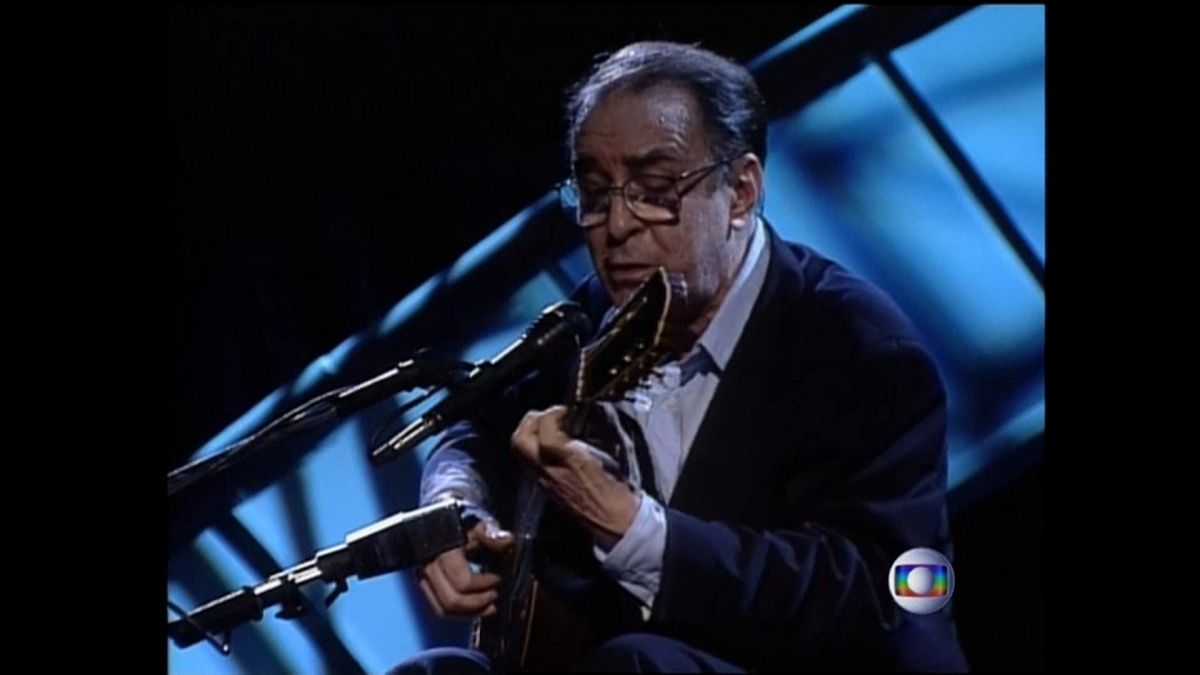
References
- McGowan, Chris; Pessanha, Ricardo (1998). The Brazilian Sound: Samba, Bossa Nova, and the Popular Music of Brazil. Temple University Press. p. 68. ISBN 9781566395458.
- ^ Ruggiero, Bob (26 June 2014). "The Girl From Ipanema – Still Turning (Jazz) Heads at 50". Houston Press. Retrieved 9 July 2019.
- ^ Chediak, Almir (1990). Bossa nova (in Portuguese). Irmãos Vitale. ISBN 9788585426347.
- ^ Heckman, Don (25 July 2003). "Primed for perfection but never reached". Los Angeles Times. ISSN 0458-3035. Retrieved 19 February 2018.
- ^ Ratliff, Ben (15 June 2008). "João Gilberto's Pioneering Bossa Nova Records Are Caught in a Legal Limbo". The New York Times. Retrieved 10 December 2017.
- ^ "Awards". National Academy of Recording Arts and Sciences. 30 April 2017. Retrieved 4 February 2023.
- ^ "Blades, Jobim Among Latin Hall Inductees". Billboard. 4 April 2001. Retrieved 8 July 2019.
- ^ Loudon, Christopher (1 October 2004). "Joao Gilberto: In Tokyo". JazzTimes. Retrieved 8 July 2019.
- ^ O'Niel, Tim (7 June 2004). "João Gilberto: In Tokyo". PopMatters. Retrieved 8 July 2019.
- ^ "Complete list of 6th annual Latin Grammy nominations". Orange County Register. 4 November 2005. Retrieved 8 July 2019.




































